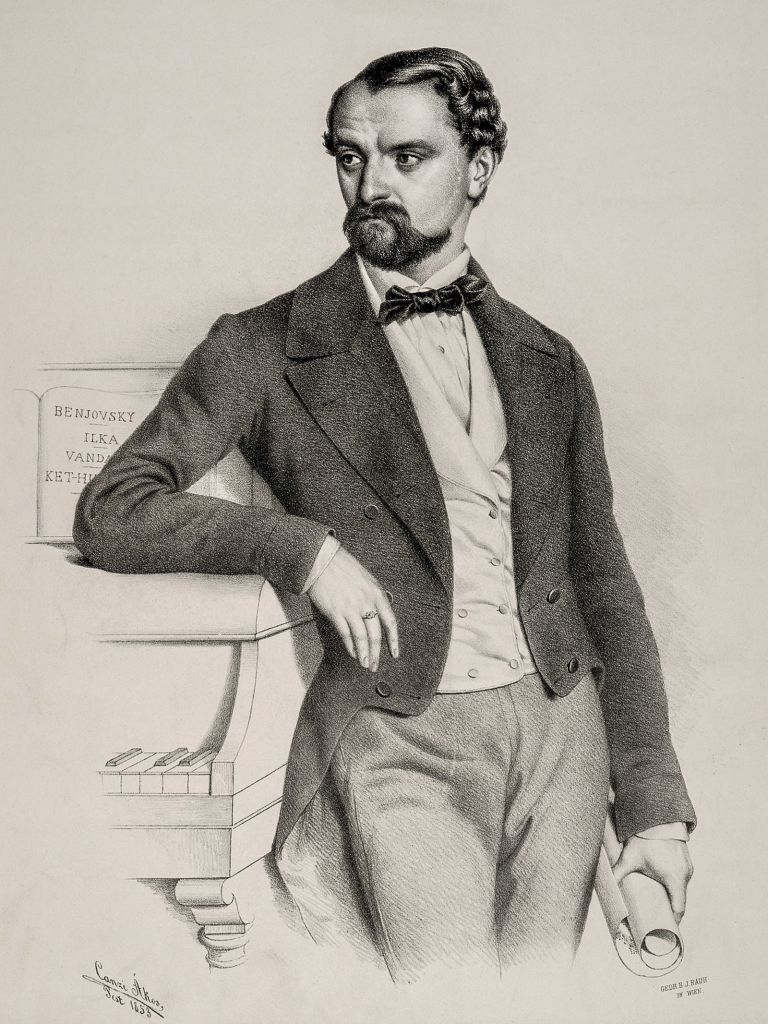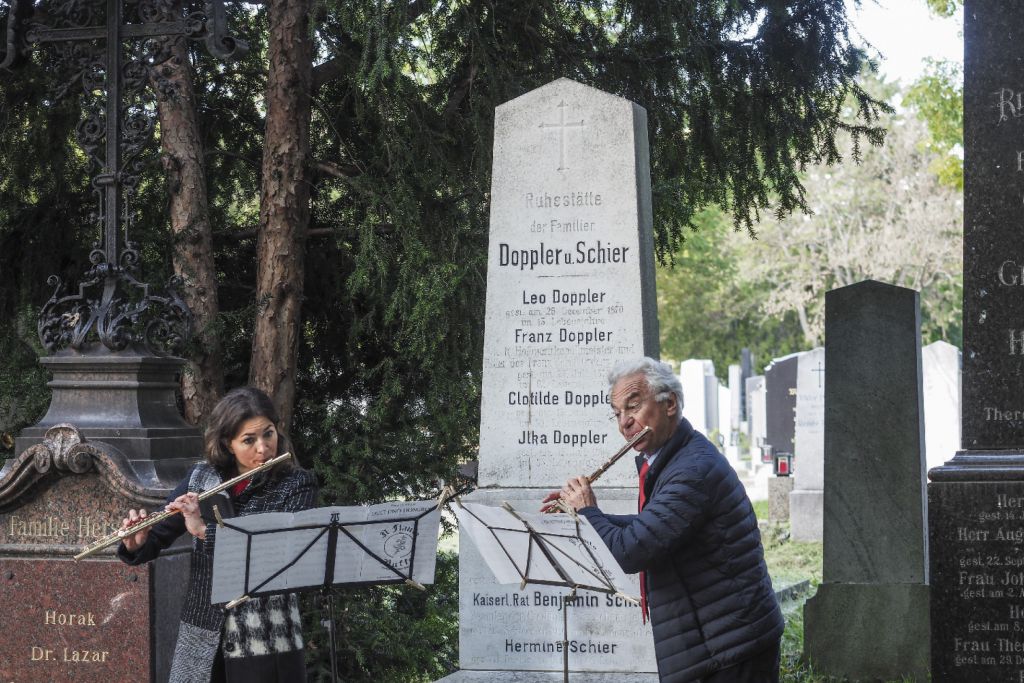It was at the Vienna Central Cemetery that Franz (Albert) Doppler, born in Lemberg (present-day Lviv, Ukraine) on 16 October 1821 as the son of a military musician, was laid to rest following a long and active career.1
Not long ago, on 16 October 2021, Doppler’s gravesite witnessed a small celebration with prominent participants to mark his 200th birthday. Among the attendees was mdw Rector Ulrike Sych, who followed the goings-on with interest.

This celebration was held in response to the City of Vienna’s very pleasing decision to honour a request made by András Adorján, president of the German Flute Society, that Doppler’s final resting place be designated a grave of honour. In the decision-making process that Adorján’s request touched off, the endorsement by both the Vienna Philharmonic and the Rector of the mdw played a pivotal role. But what history lay behind this act of recognition, which was also supported by numerous international flute societies?
Franz Doppler’s career as a flutist and composer began in Lemberg and progressed via Budapest to Vienna, where he was hired by the Court Opera as a solo flutist and a ballet conductor and also served from 1865 onward as a professor at the Conservatory of the Gesellschaft der Musikfreunde in Wien.
At first, he was joined as a flutist at the Court Opera by his brother Karl. The two brothers had a sensational career as a flute duet with and without piano, concertising all over Europe and also composing countless compositions for these forces.
Karl Doppler eventually left Vienna to lead the Hofkapelle in Stuttgart.
Franz Doppler remained in Vienna and maintained friendships with Brahms and Wagner as well as Liszt, who commissioned him to arrange several of his Hungarian Rhapsodies for orchestra.
They met frequently on Schikanedergasse at a venue that still exists today (as “Restaurant Beograd”), where a plaque now commemorates their erstwhile presence. Doppler’s numerous operas as well as his 15 ballets have since faded into obscurity. However, an essential work for present-day flutists is his Fantaisie pastorale hongroise op. 26, which is among the flute repertoire’s internationally most-played pieces.
Doppler’s flute compositions have remained popular among flutists and audiences to this day, not least because he knew how to optimally showcase the flute’s most attractive qualities.
It was with commensurate brilliance that András Adorján and Birgit Ramsl-Gaal, solo flutist at the Vienna Volksoper, performed the composition Duettino hongrois op. 36 for the celebration of Franz Doppler’s 200th birthday and the public designation of his grave as a grave of honour.

Vienna’s flute scene, represented on this day by Mathias Schulz (president of the Austrian Flute Society) and myself (as a long-time flute professor at the mdw), extends its thanks to András Adorján and the descendants of Franz Doppler—the Schier family—for organising this lovely and dignified event!
Franz Doppler’s great grandson Rudolf Schier recounted numerous intriguing details from his family’s history. The Schier family still occupies the house in Hinterbrühl that Franz Doppler purchased and has also seen to his grave’s care and restoration.
With the designation of this grave of honour, it should be possible in the future to also affix a commemorative plaque to Franz Doppler’s former residence at Mühlgasse 1.
Perhaps that occasion will be another opportunity for a full performance—possibly by mdw students in the magnificent Ehrbar-Saal nearby?
The present event’s participants celebrated with drinks afterwards courtesy of the Schier family and enjoyed this beautiful sunny autumn day immersed in lively conversation!

